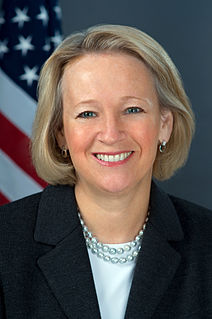A Quote by Warren Buffett
A pin lies in wait for every bubble. And when the two eventually meet, a new wave of investors learns some very old lessons: First, many in Wall Street (a community in which quality control is not prized) will sell investors anything they will buy. Second, speculation is most dangerous when it looks easiest.
Related Quotes
Wall Street can be a dangerous place for investors. You have no choice but to do business there, but you must always be on your guard. The standard behavior of Wall Streeters is to pursue maximization of self-interest; the orientation is usually short term. This must be acknowledged, accepted, and dealt with. If you transact business with Wall Street with these caveats in mind, you can prosper. If you depend on Wall Street to help you, investment success may remain elusive.
Too often, investors are the target of fraudulent schemes disguised as investment opportunities. As you know, if the balance is tipped to the point where investors are not confident that there are appropriate protections, investors will lose confidence in our markets, and capital formation will ultimately be made more difficult and expensive.
The life of a thinking man will probably be divided into two parts -- the first in which he desires to exterminate modern thinkers, and the second in which he desires to watch them exterminating each other. ... Suppose, for instance, there is an old story and a new skeptic who is skeptical of the story. We have only to wait a little while for a yet newer skeptic who is skeptical of the skeptic. He will probably find the old notion actually a help in his new notion. This process is an abstract truth applying to anything, apart from agreement or disagreement.
Establishing a 0.03 percent Wall Street speculation fee, similar to what we had from 1914-1966, would dampen the dangerous level of speculation and gambling on Wall Street, encourage the financial sector to invest in the productive economy and reduce the deficit by more than $350 billion over 10 years.
Value investors will not invest in businesses that they cannot readily understand or ones they find excessively risky. Hence few value investors will own the shares of technology companies. Many also shun commercial banks, which they consider to have unanalyzable assets, as well as property and casualty insurance companies, which have both unanalyzable assets and liabilities.
The government has brought on the housing problem, partly by these very low interest rates, which encouraged many people to go way out on a limb. They've brought it on by highly restrictive building policies, which have caused housing prices to skyrocket artificially. And they've brought it on by the Community Reinvestment Act, which presumes that politicians are better able to tell investors where to put their money than the investors themselves are. When you put all that together, you get something like what you have.






























